Les Paul, born Lester William Polsfuss, wasn’t just a guitarist; he was a revolutionary force in the world of music. Few have left a mark as indelible as Les Paul did on rock music and beyond. His iconic solid body electric guitar wasn’t just a new toy for rockers; it fundamentally changed the sound and direction of music. Coupled with his innovations in recording techniques, Les Paul carved a niche that many still admire today. If you think about it, if it weren’t for Les Paul, we might be still strumming hollow-body guitars while dreaming about sound clarity! So, pull up a chair because we’re diving into the legacy of the man himself.
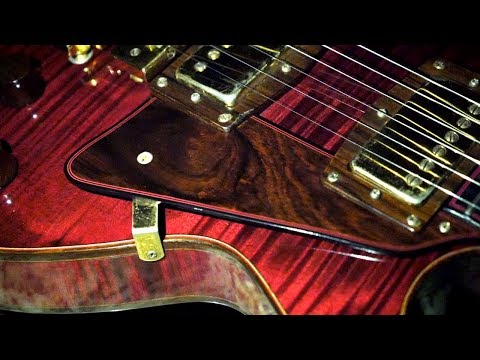
1. The Legacy of Les Paul: A Pioneer in Rock and Roll
Les Paul left behind more than just a name on a guitar; he gave us a world of sound. While he was a great guitarist, his marriage to Mary Ford didn’t just change his personal life but catalyzed some of the most iconic fusions of music and technology. Together, they were the dynamic duo of their time, blending innovative recording techniques and catchy melodies that made their mark on the airwaves. Think of Paul as the mad scientist of music—dreaming, experimenting, and, most importantly, crafting the future.
The Gibson Les Paul guitar, launched in the early ’50s, became synonymous with rock and has seen players from Led Zeppelin’s Jimmy Page to Guns N’ Roses’ Slash wielding it for riff after riff. Paul’s journey is a classic case of turning a passion into a legacy that’s still felt today. Through ups and downs, including enduring a divorce from Mary Ford and his tense relationship with Gibson, Les Paul remained a beacon of innovation in music.
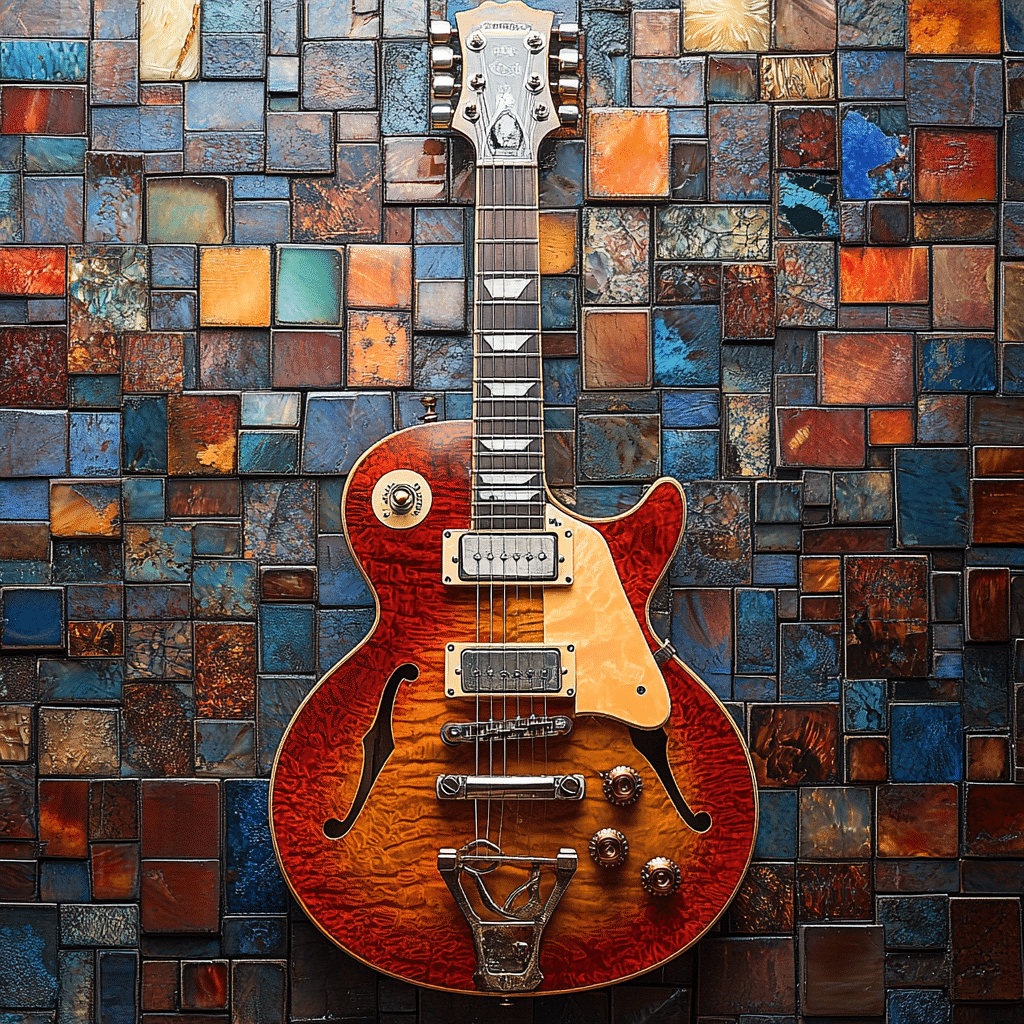
2. Top 5 Innovations by Les Paul That Transformed Music
Les Paul’s creative genius manifested through numerous groundbreaking inventions that changed the trajectory of popular music. Here are five innovations that highlight this musical innovator’s brilliance:
2.1. The Solid Body Electric Guitar
Let’s start with the solid body electric guitar. Designed in 1941, its introduction in 1952 was a game-changer. Before Les, musicians struggled with feedback and unwanted resonance when playing hollow body guitars. Les’s design solved that, allowing rock music’s brash, vibrant sound to roar through speakers. This versatility has powered everything from heavy metal to jazz, proving to be a foothold for many genres, all thanks to Les Paul.
2.2. Multitrack Recording
Next up, multitrack recording. In the 1940s, Paul cooked up the idea of layering sounds using a modified Ampex tape recorder. This technique was revolutionary! With this, artists could stack instruments and vocals, crafting lush soundscapes unheard of during the time. Imagine The Beatles’ complex arrangements during their heyday—it all hails back to Les’ foresight and ingenuity.
2.3. Overdubbing Techniques
Getting a little technical, let’s talk about overdubbing techniques. Building on his multitrack system, Les allowed musicians to record multiple takes, mixing them into a single cohesive track. This was instrumental in changing how albums were produced. Artists like The Beatles and later, modern musicians, drew from this technique to create those intricate layers we cherish today.
2.4. The Use of Sound Effects
Now, who doesn’t love a good rear-echo? Les Paul experimented with sound effects like tape delay and echo, turning simple tunes into rich symphonies. Songs like “How High the Moon” showcase his flair for transforming straightforward melodies into mesmerizing soundscapes. His willingness to experiment laid the groundwork for countless artists who followed.
2.5. The Influence on Popular Culture
Finally, let’s not ignore Les Paul’s influence on popular culture. He collaborated with legends like Frank Sinatra, bringing the electric guitar from bars to the big stage. His countless appearances on television also popularized the guitar, making it the quintessential symbol of rock music. Through his charisma and talent, Paul shifted the perception of the electric guitar, embedding it deeply in our culture.
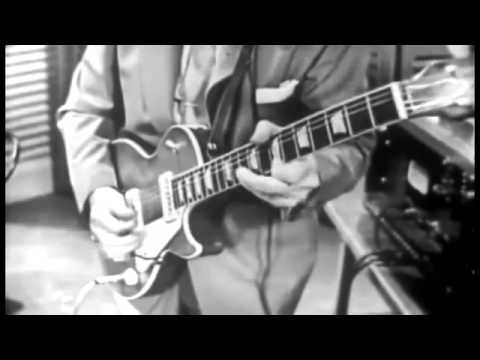
3. Les Paul’s Impact on Modern Music: A Continuing Legacy
Despite his passing, Les Paul’s influence is alive and kicking in today’s music scene. Guitarists like John Mayer and Keith Urban still acknowledge his impact, incorporating his techniques into their playing. Contemporary rock musicians often credit Les as their greatest influence, revealing how his spirit continues to inspire new talent.
The integration of technology in today’s production mirrors Les Paul’s vision. With Digital Audio Workstations (DAWs), artists layer tracks and manipulate sound in ways that would make Les proud. Each time an artist records a track, they’re carrying a piece of Paul’s legacy forward, and that’s something special.
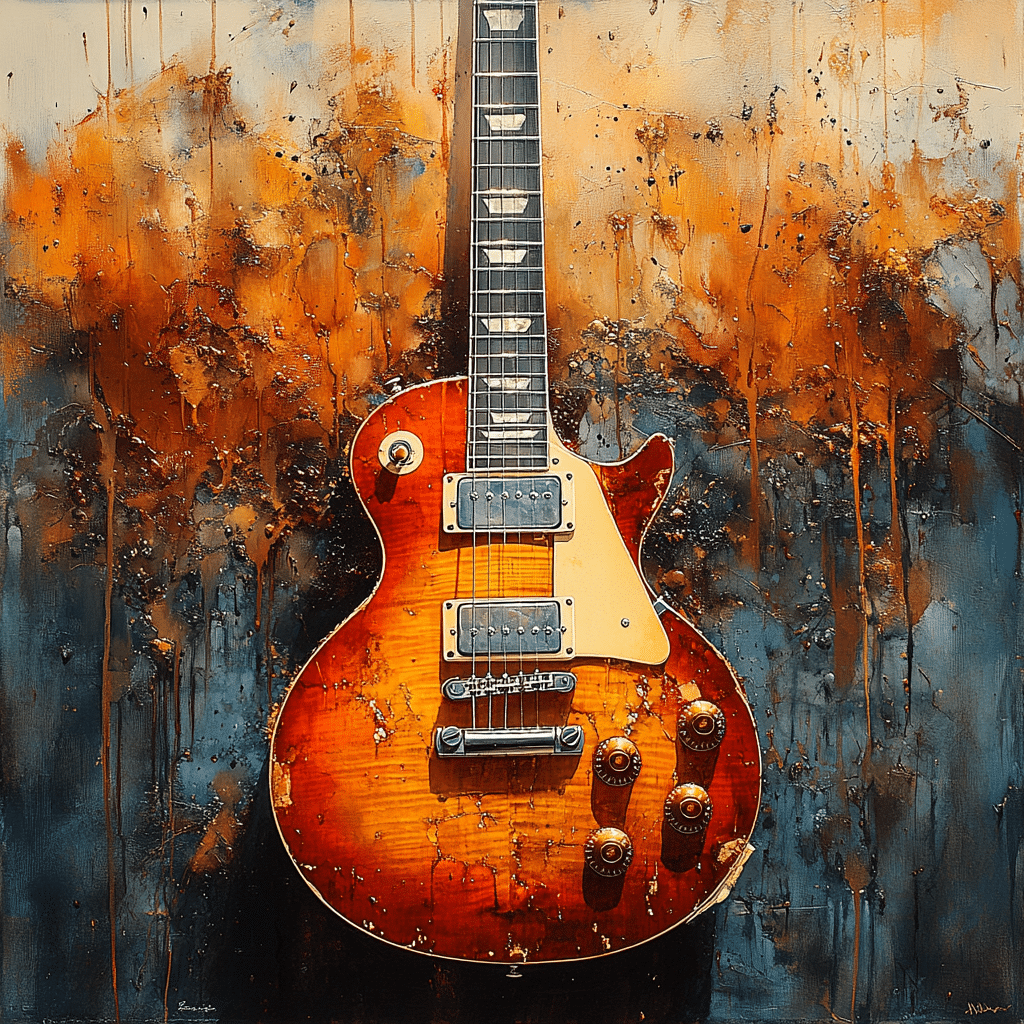
4. The Story of Menard: A Tribute to Les Paul’s Genius
Let’s take a breather and talk about Jean Paul Menard, a contemporary guitar maker who considers Les Paul his muse. Menard’s boutique guitars embody the spirit of Les, merging traditional craft with modern tech. By using high-quality woods and innovative electronics, Menard offers instruments that ultimately honor Paul while daring to push the boundaries of sound.
Menard’s creations pay homage to the rock legend, ensuring that the Les Paul brand lives on in fresh, exciting ways. His guitars attract not just old-school rockers but a new generation keen to explore their strings. Guitarists today can see Paul’s legacy in every note they play, affirming that his sound is timeless.
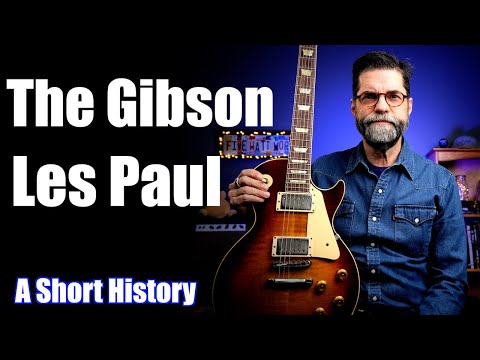
5. The Everlasting Influence of Les Paul’s Music Innovation
Les Paul’s contributions cemented him as a cornerstone of modern music. His legacy doesn’t just stop at rock. Genres like country, pop, R&B, and even punk owe pieces of their sound to Les’s groundbreaking ethos. Each time someone picks up a Les Paul guitar, they’re engaging in a tradition that transcends decades, shaping songs and styles globally.
Think about it: every artist influenced by Les Paul is a thread in a vast tapestry woven from creativity and technology. He ignited new possibilities in music, reminding us that when art meets experimentation, the results are electrifying.
As we listen to classic tunes or discover emerging artists, let’s always remember Les Paul—not just as a name emblazoned on a guitar, but as a visionary whose pursuit of innovation changed the entire landscape of music. So the next time you tune your guitar or crank up the volume, give a little nod to Les Paul; after all, he paved the way for all of us to rock on!
Les Paul: The Innovator Who Shaped Rock Music
The Magic of Les Paul
Les Paul, a name synonymous with the electric guitar, didn’t just stop at playing; he revolutionized how music is made. Did you know that he was among the first musicians to utilize multi-track recording? This innovation allowed artists to layer their sounds, leading to some of the most iconic songs in rock history. Just think about it—without Les Paul’s groundbreaking techniques, we might not have enjoyed the layered sound of a band like The Beatles. Talk about a ripple effect! I mean, who can forget those catchy tunes that still play in the background of our celebrations? Maybe even at a casual wedding where everyone’s having a blast, right? Speaking of celebrations, how’s that news for Ashanti getting pregnant making rounds?
The Guitar That Changed Everything
Let’s not forget about the famous Gibson Les Paul guitar, designed in collaboration with the man himself. This guitar has become a staple in rock music, played by legendary musicians from Jimmy Page to Slash. It’s incredible how one instrument can shape an entire genre, but that’s what Les Paul did! The blend of craftsmanship and his passion truly made it a game-changer. Much like how Mark Wahlberg’s wife has been influential in her own right, pushing the boundaries of her career while juggling personal life, Les Paul juggled various aspects of music innovation. Isn’t it crazy how one person’s genius can elevate an entire industry?
Beyond the Strings
But wait, there’s more! Les Paul wasn’t just an innovator with instruments; he was also a keen businessman. He established a sound recording studio where he pioneered countless audio techniques. Just like Stephen A. Smith dives deep into sports analysis, Les Paul revolutionized the way we hear music. His passion was relentless, and it was evident in every note he played. And speaking of relentless pursuits, it’s pretty fascinating to see how stars chase major deals, much like Mbappé’s lucrative salary in sports.
So, there you have it. Les Paul was much more than just a guitarist—he was an innovator whose influence will be felt for generations to come. From the time he played in speakeasies to his lasting legacy in rock and pop, his life was one exciting ride! And hey, who knows? His story might lead you on an unexpected adventure, just like a trip to Curacao and its stunning beaches, shown beautifully on Curacao island map. So, whether you’re strumming a chord or tapping your foot to a classic, remember—you’re vibing to the genius of Les Paul!
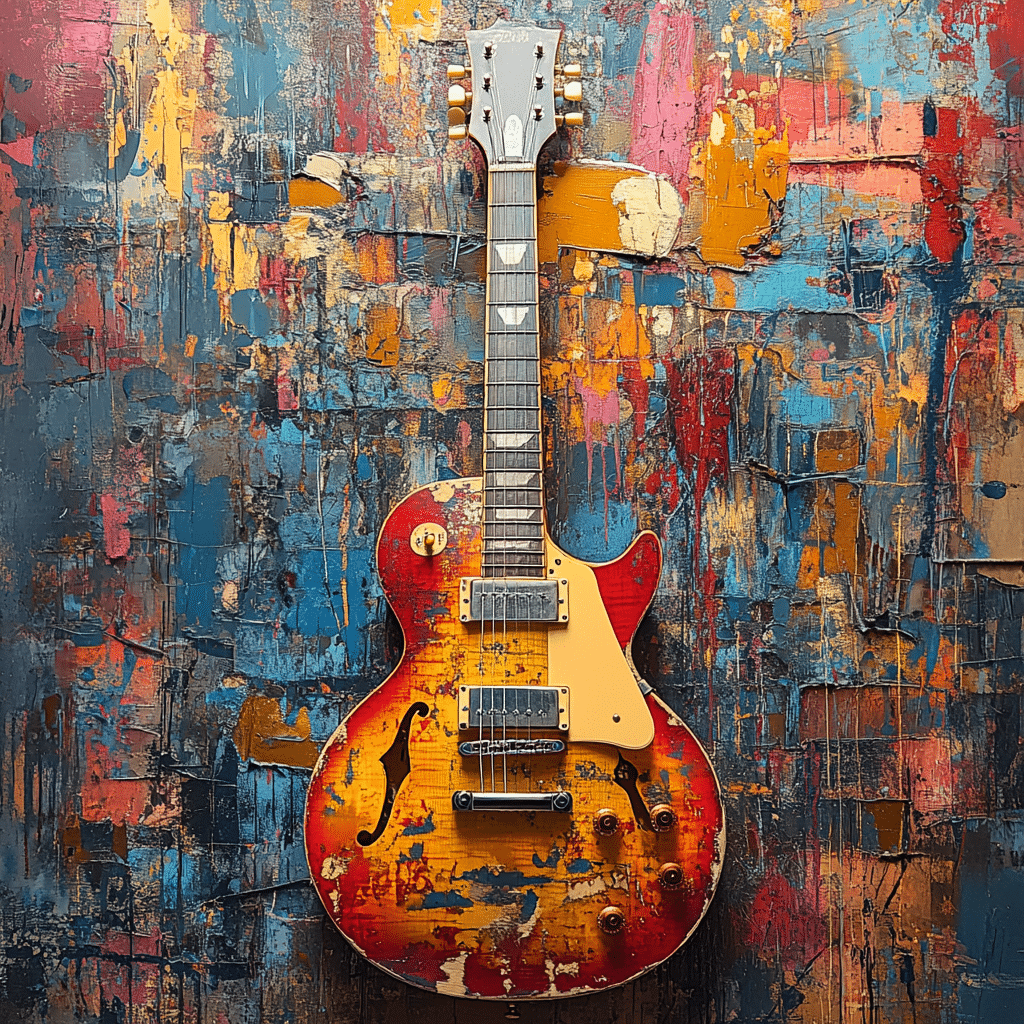
Why is Les Paul so famous?
Les Paul is famous for inventing the solid-body electric guitar and for revolutionizing music production with his recording techniques like overdubbing and multi-track recording, which paved the way for modern pop music.
Why did Les Paul leave Gibson?
He left Gibson due to dissatisfaction with the design and quality of a new guitar model and a personal crisis stemming from his divorce from Mary Ford, leading to a break in his endorsement from 1964 to 1966.
Did Les Paul invent the electric guitar?
Yes, Les Paul is credited with inventing the solid-body electric guitar in 1941, and Gibson released guitars based on his design starting in 1952.
What is a Les Paul guitar for?
A Les Paul guitar is versatile and is used across many music genres, ranging from rock and pop to jazz and blues, making it a popular choice for musicians.
What makes a Les Paul sound so good?
What makes a Les Paul sound so good is its unique combination of wood materials, humbucking pickups, and solid-body construction, providing a warm tone with rich sustain.
Did Elvis use a Les Paul?
Elvis Presley primarily played acoustic guitars and didn’t famously use a Les Paul, although other artists in his era did.
Did Jimi Hendrix use Les Paul?
While Jimi Hendrix is better known for using Fender guitars, he did occasionally use a Les Paul, but it wasn’t his main instrument.
Why are Les Pauls hard to play?
Les Pauls can be hard to play due to their heavier weight and shorter neck, which can be challenging for some players, especially those looking for faster playability.
Who taught Les Paul to play guitar?
Les Paul learned to play guitar by teaching himself and with some guidance from local musicians as a kid, honing his craft over the years.
Who actually invented the guitar?
The guitar itself has a long history, but the modern version evolved over centuries with contributions from various cultures and inventors, making it hard to credit a single person with its invention.
Where is Les Paul buried?
Les Paul is buried in the Freedom Plaza section of the Arlington National Cemetery in Virginia, a resting place bestowed by the military for his contributions.
How to tell the difference between classical and acoustic guitar?
Classical guitars typically have nylon strings and a wider neck, while acoustic guitars have steel strings and a narrower neck, which affects their sound and playability.
Why do gibsons sound so good?
Gibson guitars, including the Les Paul, are famed for their rich, warm tone and sustain, partly due to their solid construction and high-quality materials.
Did the Beatles use a Les Paul?
The Beatles did use a Les Paul, particularly George Harrison, who famously played one on several tracks, adding to their iconic sound.
What does LP stand for in guitar?
LP stands for “Les Paul,” named after the famous guitarist and inventor, highlighting his contribution to the guitar’s design.
What makes Les Paul special?
Les Paul guitars are special because of their innovative design, distinct sound characteristics, and the influence they’ve had on countless genres and artists over the years.
Why do gibsons sound so good?
Gibson guitars stand out for their craftsmanship, tonal qualities, and the deep musical heritage they carry, making them a favorite among many musicians.
How did Les Paul change the world?
Les Paul changed the world by creating the solid-body guitar and pushing the boundaries of recording techniques, significantly influencing popular music and sound engineering.
Who is famous for using a Les Paul?
Famous musicians who used a Les Paul include legends like Jimmy Page, Slash, and Paul McCartney, contributing to its status as an iconic instrument in rock history.






















